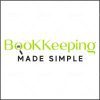Today, I want to talk about partnerships.
There are several entity types available when you start a new business. Each has it’s own benefits and drawbacks.
Partnerships occur when two or more people decide to go into business together.
As you can imagine, any time there’s more than one person involved in a business like that, it becomes critical that everything to do with the business is in writing.
Who makes the day to day decisions? Are decisions weighted by the capital or time each partner put into the business? Who owns what percent of the business?
A common misconception is that the partner who owns the most of the business gets final say on operations. That is not necessarily the case – one partner may be a silent partner, providing funds but not business direction. It may be the case that an owner of a smaller percentage of the business has a better grasp of business administration. and thus is the best choice to manage the business.
However the partners decide to set up the business, putting the agreement in writing is absolutely critical to avoid misunderstandings and “he said, she said” problems later.
It is not legally required to have a partnership agreement in place to form the business, but it is a terrible idea to do without it.
Partnership tax returns are filed on Form 1065. This return notifies the IRS of how much each partner made in the business (usually on a Form K1). That income then flows through to each partner’s individual tax return, much like an S Corp.
The most concerning drawback of a partnership is the liability issue, which is compounded by the number of partners involved.
All partners are responsible for the debts of the business, and can be held responsible personally for any lawsuits. So, if partner 1 creates debt for the business, all partners are then held responsible for it. If one partner leaves the partnership for any reason, the partnership is then dissolved.
For this reason, general partnerships can’t be passed down in a will or sold.
A new partnership can be formed with remaining and /or new partners. If you want to form a partnership, but don’t want to be concerned about liability, there are options, which I will discuss in another post.
If you’re interested in forming a partnership, it’s a good idea to get an attorney to draft the agreement. Feel free to give us a call at 801-692-0032. and we’d be happy to put you in touch with the top notch business attorneys we work with.
Donna Harris holds a BSci in Accounting and is the owner of Bookkeeping Made Simple.

Donna Harris
Owner
Donna Harris, BSci Accounting, MBA, founded Bookkeeping Made Simple with the understanding that small businesses is the heart of the American economy. After offering to do books for a friend who said he didn't have enough work to keep someone in the office 20 hours a week, she recognized the need for an efficient, online system. She has 20 years of bookkeeping and accounting experience and is excited to help small business owners achieve their goals. She enjoys spending time with her family and traveling whenever possible. She also loves reading, hiking, camping, cooking, yoga, and fitness. A huge believer in lifelong education, she is currently working on her master's in Accounting.
